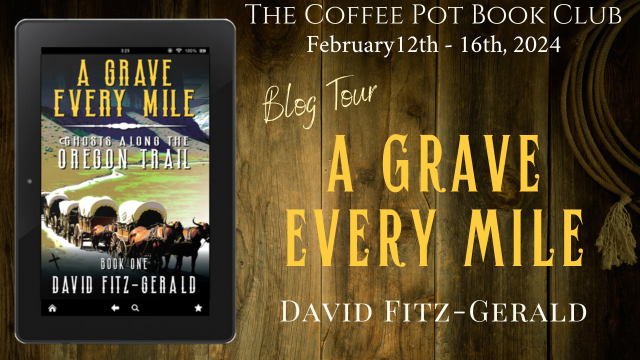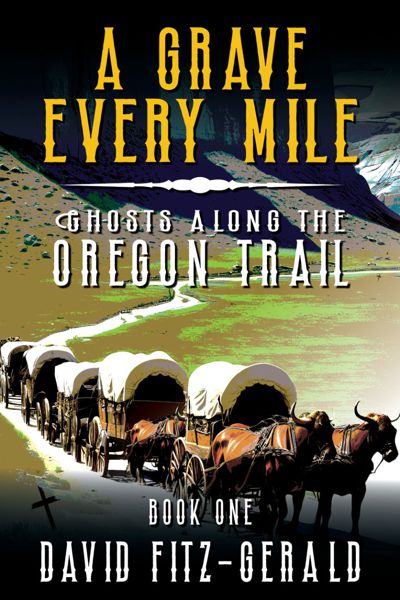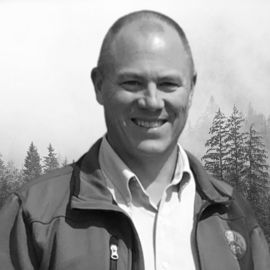
Embark on a harrowing trek across the rugged American frontier in 1850. Your wagon awaits, and the untamed wilderness calls. This epic western adventure will test the mettle of even the bravest souls.
Dorcas Moon and her family set forth in search of opportunity and a brighter future. Yet, what awaits them is a relentless gauntlet of life-threatening challenges: miserable weather, ravenous insects, scorching sunburns, and unforgiving terrain. It’s not merely a battle for survival but a test of their unity and sanity.
Amidst the chaos, Dorcas faces ceaseless trials: her husband’s unending bickering, her daughter’s descent into madness, and the ever-present danger of lethal rattlesnakes, intensifying the peril with each step. The specter of death looms large, with diseases spreading and the eerie howls of rabid wolves piercing the night. Will the haunting image of wolves desecrating a grave push Dorcas over the edge?
With each mile, the migration poses a haunting question: Who will endure the relentless quest to cross the continent, and who will leave their bones to rest beside the trail? The pathway is bordered by graves, a chilling reminder of the steep cost of dreams.
A Grave Every Mile marks the commencement of an unforgettable saga. Start reading Ghosts Along the Oregon Trail now to immerse yourself in an expedition where every decision carries the weight of life, death, and the pursuit of a brighter future along the Oregon Trail.

Chapter 1:
Independence, Missouri, April 13, 1850
It is late afternoon by the time everyone has completed and stowed their purchases. We’re about to climb into our wagons when we notice townspeople scurrying from the streets and boardwalks, taking cover indoors.
A couple of tough-looking men appear on the street, facing each other, hands hovering at their sides, guns in their holsters. This isn’t like the young men throwing fists a few hours earlier. The air feels thick with tension. I swallow hard and realize that one of the two men is about to die. We hasten around the corner onto Liberty Street just as the sound of gunfire explodes in the air.
I was the last to make it safely around the bend and the first to peek back around the corner.
One man stands, leaning backward, arms stretched and laughing menacingly. The other has dropped where he stood, limbs akimbo, in a heap on the muddy street.
People who had ducked for cover moments earlier return to get a closer look. A thin man in a brown vest steps into the street. Two men follow closely behind him, amble toward the dead body, lift the man from the road, and carry him away like doing so is an everyday occurrence. This town is nothing like the ones back home. Though I don’t know them, I’m curious about the quarrel that compelled their duel.
Larkin steps forward, Dahlia Jane in his arms, and says, “Let’s go now. If we survive Independence, the rest of the trail should be easy.”
A shiver halts me briefly, as Larkin’s prediction of smooth sailing ahead disappears into the air. We climb into the wagon and I turn, notice that Rose is missing, glancing about, hoping to spot her. She’s halfway to the place where the gunfighter fell in the mud. I shout for her to come back, but she doesn’t seem to hear me. I leap from the wagon. More mud splatters my dress, but I run to find her.
When I catch up to Rose, she’s rounding the corner, seemingly following the men who carried the dead body. Where are they now?
I’m right beside Rose, yet she still doesn’t happen to hear me. I reach for her shoulders, shake her gently, and repeat her name. She glances at me quickly, then looks back up the street, directly at a building with a sign that reads, “Undertaker.” The foul air reeks of rotten eggs, moldy bread, and hot manure. I guess that’s what decaying human bodies smell like. As the carried corpse disappears within the structure, Rose turns back toward our wagon without a word.
When I catch up to her again, I ask, “Rose, honey. Is there something the matter? Do you want to talk about it?”
She shrugs. “No. Why, Mama?”
I’m confused. It’s like nothing has happened, or she has already forgotten about following the cadaver. I shake my head and wonder where her mind goes sometimes.
Usually, we walk alongside the wagon but this evening, we ride as passengers while Larkin walks beside our team of six oxen, in three teams of two, led by Hardtack, our gentle giant, and Scrapple, his partner.
Larkin never rides in the wagon, because he says it makes him seasick. An hour later, we join a dozen wagons, already settled into an encampment.
Our boys, Andrew and Christopher, who are eleven and nine, tend the oxen, and Larkin pitches a tent beside the wagon. It is harder than usual to make sleeping space among our belongings with extra provisions crowding our confined footage. With limited space inside the vehicle, Larkin and the boys will sleep in a tent, while the girls and I slumber under the cover of a canvas wagon bonnet, crowded by cargo.
Last fall, we left our home, in the Adirondack Mountains of New York State, moving as swiftly as oxen can go, arriving in Missouri before the worst of winter’s weather. We rented a vacant cabin with our friends for a couple of months, living together in tight quarters before striking out again, arriving in Independence early this morning. It’s hard to complain about all the things we left behind when everything we own is packed into such a small space. I almost wish we’d left more things behind.
When I finish tucking the girls in, I nestle myself among sacks of provisions and inhale deeply. The rich, sweet smell of cornmeal fills my nostrils and I close my eyes. I should be thinking about rolling forward into the future with my family, but all I can think about is the dashing assistant wagon master, Agapito Huerta Delgado. What kind of a name is that? Where we’re from, nobody has such musical sounding names.
Even if I were unmarried, it would be foolish to think about such a handsome man. My mother always told me that the good-looking ones are nothing but trouble. I tell myself that I am happily married, but sometimes, I am not a good listener.
This title is available on #KindleUnlimited.
Universal Buy Link: https://books2read.com/agem
Meet David Fitz-Gerald

David Fitz-Gerald writes westerns and historical fiction. He is the author of twelve books, including the brand-new series, Ghosts Along the Oregon Trail set in 1850. Dave is a multiple Laramie Award, first place, best in category winner; a Blue Ribbon Chanticleerian; a member of Western Writers of America; and a member of the Historical Novel Society.
Alpine landscapes and flashy horses always catch Dave’s eye and turn his head. He is also an Adirondack 46-er, which means that he has hiked to the summit of the range’s highest peaks. As a mountaineer, he’s happiest at an elevation of over four thousand feet above sea level.
Dave is a lifelong fan of western fiction, landscapes, movies, and music. It should be no surprise that Dave delights in placing memorable characters on treacherous trails, mountain tops, and on the backs of wild horses.
Connect with David
Linktree https://linktr.ee/authordavidfitzgerald
Website: https://www.itsoag.com/GATOT
Twitter: https://twitter.com/AuthorDAVIDFG
Facebook: https://www.facebook.com/AuthorDaveFITZGERALD/
Instagram: https://www.instagram.com/authordavefitzgerald/
Pinterest: https://www.pinterest.com/AuthorDaveFITZGERALD
Book Bub: https://www.bookbub.com/profile/david-fitz-gerald
Amazon Author Page: https://www.amazon.com/author/dfitzgerald Goodreads: https://www.goodreads.com/author/show/17341792.David_Fitz_Gerald
